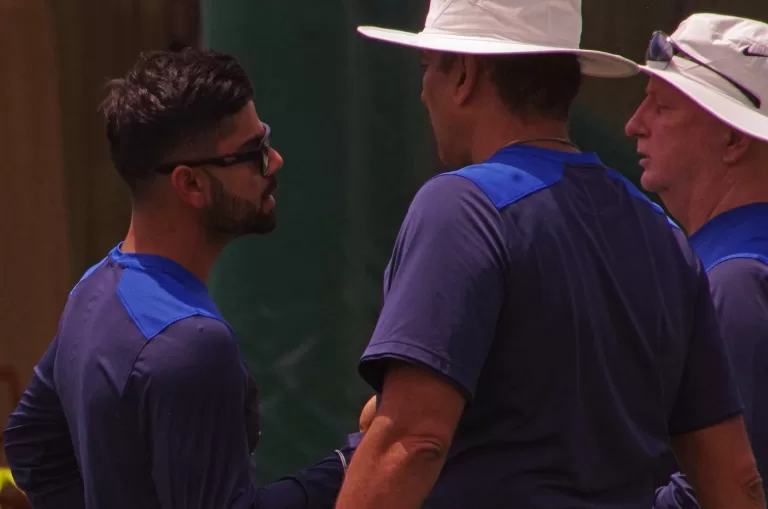India have been triumphant at home and away under Ravi Shastri, including victories over South Africa, Australia, and New Zealand – but is he the right man for the job?
India have been performing well in all formats as of late – but even before Shastri’s appointment, they weren’t exactly struggling. The jury is still out on whether Ravi Shastri deserves a renewal, but India’s Cricket Advisory Committee (CAC) needs no convincing as they’ve granted their head coach another term at the helm.
But what does Ravi Shastri offer that his competitors don’t? The immediate answer would be the backing of Indian captain, Virat Kohli. Anil Kumble resigned as coach due to differences with Kohli, and that debacle only highlighted the latter’s decision-making power. However, after two unsuccessful away Test series and a World Cup semi-final defeat, it wouldn’t be fair to say Shastri has done significantly better than Kumble.
JUST IN – Ravi Shastri has been re-appointed head coach of the Indian men's side! pic.twitter.com/cpJOn9qtl4
— ICC (@ICC) August 16, 2019
Despite their differences, Kohli and Kumble managed to take India to the Champions Trophy final. On the other hand, the more harmonious duo of Kohli and Shastri failed to get past New Zealand in the recently-concluded World Cup. Should India’s captain possess this much power despite recent failures or should both coach and captain be held accountable? Yes, India have had considerable success in bilateral series since 2017 – but they’ve also lost some crucial matches (as was the case before Shastri).
India’s incredibly talented players have delivered similar results under both of the aforementioned coaches – so why does Shastri get a longer stint? Shouldn’t he be held accountable for the team selection issues plaguing the side? After all, the constant tinkering over the last couple of years has led to the axing of important players like Ambati Rayudu.
It was a cricketing match made in heaven but it wasn't to be, says @bhogleharsha about the Kohli-Kumble fallout: https://t.co/l1IoqfYTvH pic.twitter.com/cbbGw7zZeu
— Cricbuzz (@cricbuzz) July 6, 2017
Virat Kohli has done a solid job on the pitch in terms of field placements, bowling changes, and motivating his team – but practically everything off the field should fall on the coach’s shoulders. If the captain is left in charge of everything, including team selection and training routines, it’ll inevitably affect his performance on the field. This is where the coach must step in and take the lead.
With no evidence to the contrary, it seems like India’s captain runs the show for his side. This isn’t an intrinsically bad thing, but teams are better off distributing responsibilities more evenly – with a commanding coach at the forefront of it all. However, until Kohli is captain, it’ll be difficult for anyone to fill Shastri’s shoes. With two T20 World Cups coming up in the space of two years, India will be hoping for at least one title to justify their existing plan.
Here's Ravi Shastri's record as India's head coach
Should he continue in his position?https://t.co/35RbLPFD9z pic.twitter.com/CjDScHvBb4
— ESPNcricinfo (@ESPNcricinfo) August 16, 2019
There’s no doubt that India have become a remarkably adept unit under Kohli’s captaincy. Even so, they need their coach to question the captain’s decisions when necessary – especially when it comes to team selection. For now, India should focus on the World Test Championship and look to build a solid squad for the T20 World Cup.
